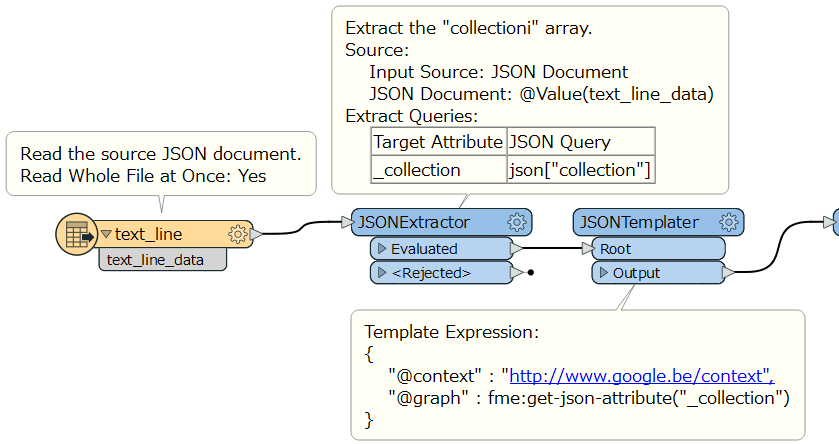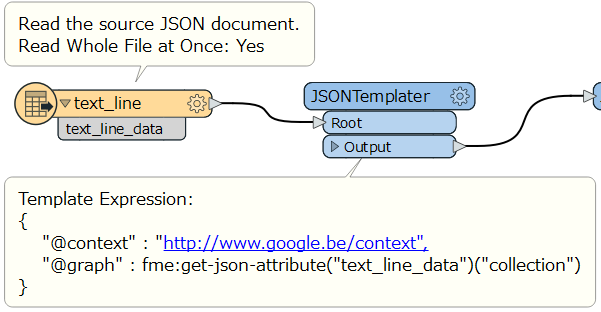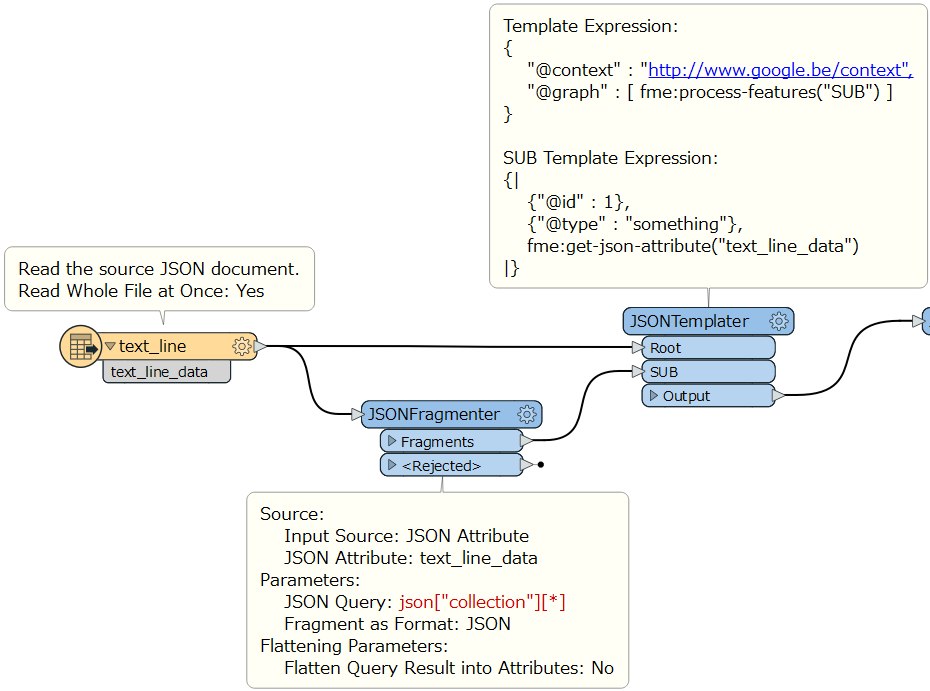Hi,
I am looking for advice how to turn a JSON file into a JSON LD (linked data) with FME.
This is an example of a JSON LD format
https://json-ld.org/spec/latest/json-ld-framing/#example-3-flattened-library-objects
There are 2 parts:
1) @context: where you place the link to the complete vocabulary of the model
2) @graph: where the features are written.
How can I introduce these 2 parts when writing JSON in FME?
Jasper











